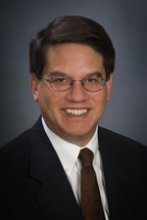Planning for bequeathment of physical and fiduciary assets is commonplace. But because of terms of service, laws like ECPA, and content licensing structures, the fate of our digital assets — and identities — is significantly more complicated. Are digital assets even “assets” at all or are they just licenses that expire with users? Lawmakers, sociologists, companies, and citizens alike are beginning to grapple with the appropriate measures and processes for post-life management of personal data. From digital content trusts to memorialization of online profiles, panelists will dig into the sociological, philosophical, and legal issues regarding what happens to our data when we die.
Digital Afterlife: What Happens to Your Data When You Die?
A former research editor and manager at Palo Alto's Institute for the Future, Jess is currently senior analyst on the public policy and government relations team at Google. As a freelance writer and cultural critic, Jess's writing has appeared in MAKE, The Onion, 7x7, and on Boing Boing, AlterNet, and several Bay Area music blogs. In 2009, Jess was nominated for a Webby award in the "Website: Weird" category for a blog she co-created, Sad Guys on Trading Floors. In 2002 she served as an intern in President Clinton's post-presidential office in Harlem. Jess received her B.A. in politics from NYU and her master's in information management and systems from UC Berkeley's School of Information. In 2011, she earned the I School's James R. Chen award for outstanding final project in information research for her master's thesis, "Making Metadata: The Case of MusicBrainz."
Jed Brubaker is a Ph.D. candidate in informatics at UC Irvine, where he takes a human-centered approach to studying how individuals are represented in large technological systems and datasets. Over the past four years, Brubaker has studied the challenges and opportunities social media platforms present following the death of account holders. He has documented ways that social media platforms are changing our experiences of death and memorialization, demonstrated limitations of current social media platforms, and worked to improve the ability of technological systems to support the entirety of our lives — including when those lives come to an end. Brubaker previously earned his M.A. at Georgetown University in communication, culture, and technology, and his B.S. at the University of Utah in psychology.
Stephen S. Wu is a Silicon Valley partner in the law firm Cooke Kobrick & Wu LLP. His practice focuses on technology and intellectual property litigation and representing technology startups as their outside general counsel. He helps clients negotiate a variety of transactions and handles privacy, information security, records management, and other compliance issues. He advises clients concerning virtual property, virtual worlds, and video game legal issues. Mr. Wu also has experience in estate planning and administration matters.
Mr. Wu served as Chair of the American Bar Association Section of Science and Technology Law from 2010 to 2011. He also served as president of the SL Bar Association in the Second Life® virtual world from 2009 to 2010. Finally, he teaches virtual worlds and video game law at Santa Clara Law School as a lecturer.
Mr. Wu is a 1988 graduate of Harvard Law School and, before starting his private practice, was the second in-house attorney at VeriSign, Inc. Before VeriSign, Steve practiced with two international law firms in the areas of intellectual property, commercial, and general litigation, as well as technology licensing and transactions.



